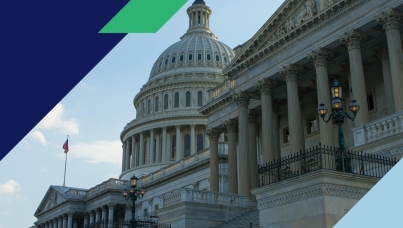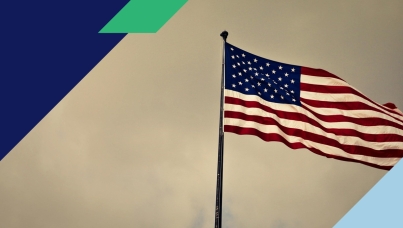How the public feels about the Silicon Valley Bank failure
Last week Silicon Valley Bank—the bank for tech companies, start-ups, and venture capitalists—failed, making it the first bank to fail since the 2008 financial recession. The panic from SVB’s collapse tore down Signature Bank, led to the sale of Credit Suisse to USB, and tumult in the markets.
To contain any further fallout, the Fed stepped in and guaranteed all depositors they would get their money, hoping to prevent any other bank runs or financial jitters.
The differences between the 2008 recession and the Silicon Valley Bank failure are significant. Namely, taxpayers' money went to bailing out the banking industry in 2008, while insurance that banks pay is bankrolling depositors at failed institutions this time around, not taxpayers. Still, the government is stepping in yet again, and the role the government plays in financial systems is front and center.
How do Americans feel about this? What’s changed? Are people even paying attention to the Silicon Valley Banking crisis?
In the five charts below, we explore how Americans are approaching the banking crisis and how public opinion on government bailouts has changed in the past decade.
- Trust in the banks. Bank runs are panics, but it seems many Americans aren’t panicking. Most Americans trust that their bank is stable, and their deposits are safe. Few are changing their banking behavior because of the failure of Silicon Valley Bank. Overall, this is good news. Trust in the banking system is crucial.
- Silicon Failure. Only a bare majority of Americans are tuned into the Silicon Valley Bank failure. Most, particularly lower income Americans, aren’t following that news. None the less, the public supports the actions that the U.S. government took, namely guaranteeing deposits for individuals and businesses at banks that fail. The public isn’t fully tuned in, but they are largely supportive of what’s happened so far.
- Bailout Options. This isn’t the first time discussion of government bailouts of financial institutions has come up. Remember 2008? Over the past decade, support for government bailouts of financial institutions grew, particularly among Republicans and independents. Now, there hasn't been as much partisan infighting on government bailouts. Partisan cueing matters here. But risk aversion does even more.
- Wording matters. While many Americans support a government bailout, even more support the government bailing out financial institutions if it prevents a recession. The pandemic and 2008 recessions are relatively fresh experiences for many Americans. Most want to avoid repeats at all costs. Bailout yes; recession no.
- Blame game. What’s fair here? Many Americans want to see investors who triggered a bank run held responsible. Almost no one wants to see taxpayers foot the bill for irresponsible bank management.
The 2008 financial crisis sparked a populist movement on the left and right. While the bank failures of 2023 don't appear to be close to the fallout from the Great Recession, Americans expect a certain level of fairness and justice in how the government deals with the crisis. The government bailouts of the aughts did not inspire a sense of justice for many. Ultimately, how this gets remembered and factors into our zeitgeist up in the air. We can only wait and see.



